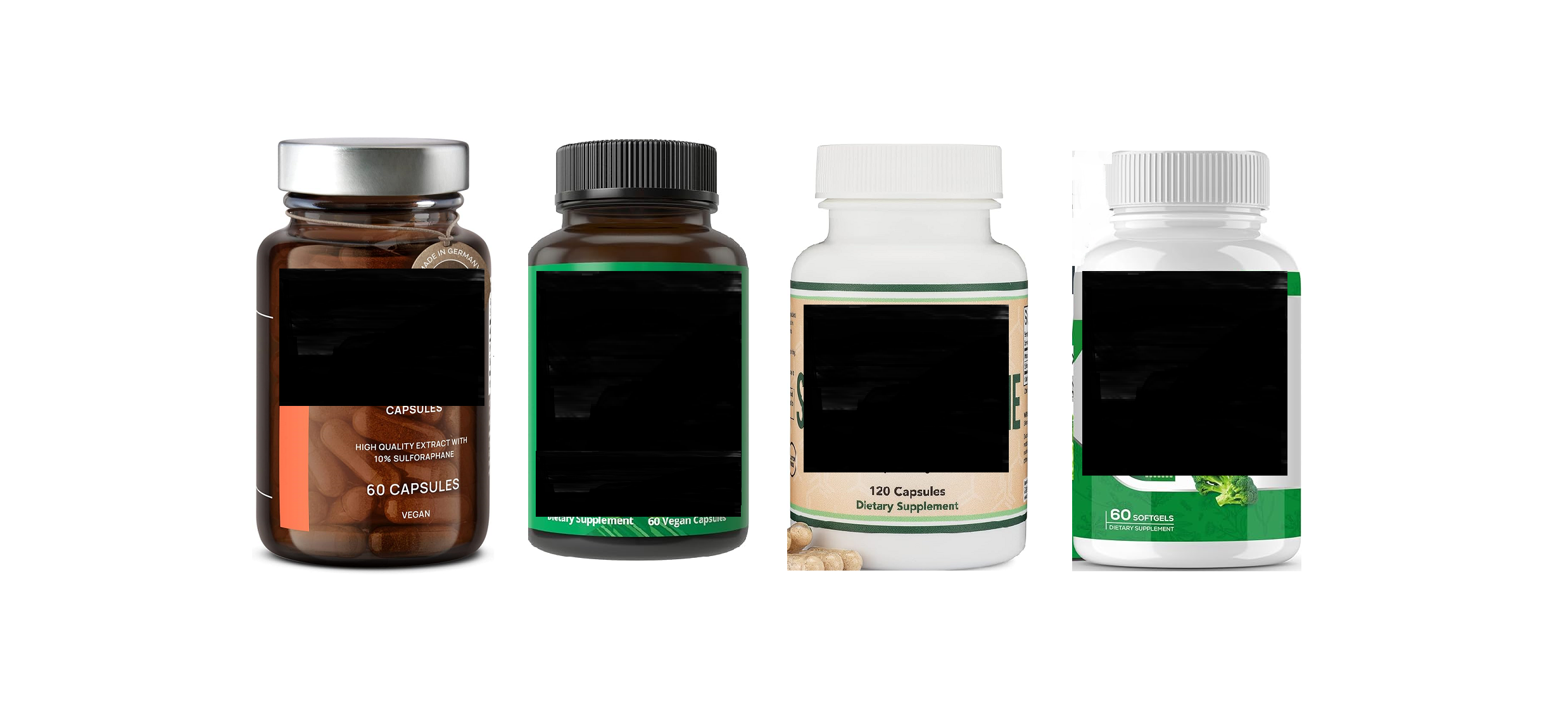Rhonda Patrick is arguably the queen of sulforaphane. I came across this YouTube short, however, where she says that broccoli supplement Avmocol has sulforpahane. It does not. It is a glucoraphanine supplement (the precursor to sulforaphane). She goes on to say that it is one of the two sulforaphane supplements that she recommends. She touts that they have both been in peer-reviewed studies. Sounds good, right? Well ... let's discuss.
Sulforaphane and glucoraphanin are both compounds found primarily in cruciferous vegetables such as broccoli, Brussels sprouts, and cauliflower, and they're closely related in terms of their structure and biological activity. However, there are key differences between them.
- Glucoraphanin aka Sulforaphane Glucosinolate: Glucoraphanin is a glucosinolate, a type of plant compound that has been associated with potential health benefits. It is the precursor molecule that comes before sulforaphane. Glucoraphanin is a stable, inactive compound, which makes it perfect for putting it into capsules.
- Sulforaphane: Sulforaphane, on the other hand, is an isothiocyanate, a type of compound that is typically created when glucosinolates like glucoraphanin are broken down - either through chewing, chopping, or digestion. This process is facilitated by an enzyme called myrosinase. Sulforaphane is the biologically active form of glucoraphanin, and it's this compound that is often associated with the potential health benefits of cruciferous vegetables.
In short, glucoraphanin is the precursor to sulforaphane and is converted into sulforaphane by the action of myrosinase. Most broccoli supplements on the market are simply glucoraphanin, despite the marketing and claims of being sulforaphane.
Supplement companies call glucoraphanin by another name Sulforaphane Glucosinolate. This, in my opinion, is confusing and misleads people into thinking that the supplement actually has sulforaphane. But glucoraphanin supplements are not effective.
So, the marketing suggests that glucoraphanin gets converted to sulforaphane in the gut. While some people have gut bacteria that can perform this conversion, many people don’t. Additionally, the amount of sulforaphane created is not enough to be clinically relevant.
Sulforaphane is more potent and is responsible for many of the approximately 37 distinct health benefits associated with eating cruciferous vegetables. However, sulforaphane is unstable and tends to degrade quickly.
The only other supplement with stabilized sulforaphane in the capsule is Broq. Broq chemically extracts sulforaphane using hash synthetic chemical solvents. And while Broq has twice the sulforaphane as compare to BrocElite, Broq does not turn on the NRF-2 pathway when we tested on buccal cells. This is due to Broq focus on extracting sulforaphane as opposed to all the other cousin molecules in the seed. BrocElite extracts all of these cousin molecules, called isothiocyanates, and therefore much more analogous to the broccoli sprout extract beverages created in research trials.
So, the takeaway points are that:
- Sulforaphane is amazing for benefitting your health,
- Most broccoli supplements DO NOT have sulforaphane.
- The only other supplement with stabilized sulforaphane in the capsule does not induce Nrf-2 when we tested on buccal cells.
Well, going back to Rhonda Patrick and Avmacol, we decided to pull a Johns Hopkins paper that used Avmacol as the sulforaphane source. Hopkins has the Chemoprotective Institute, which has a huge broccoli sprout-growing operation. They usually broccoli sprout beverages from here that are high in sulforaphane for their research. Here is a short video where I walk through the most important data in the paper. But the bottom line conclusion of this paper is that Avmacol doesn’t induce Nrf-2, which is target pathway for sulforaphane and why sulforaphane has many of the amazing benefits we talk about.
So, for your sulforaphane needs, use BrocElite. It's combination of sulforaphane and other isothiocyanates actually turn on Nrf-2! But, hey, I'm biased - right?










1 Comment
I think Rhonda Patrick Should read this!! Good explanation.